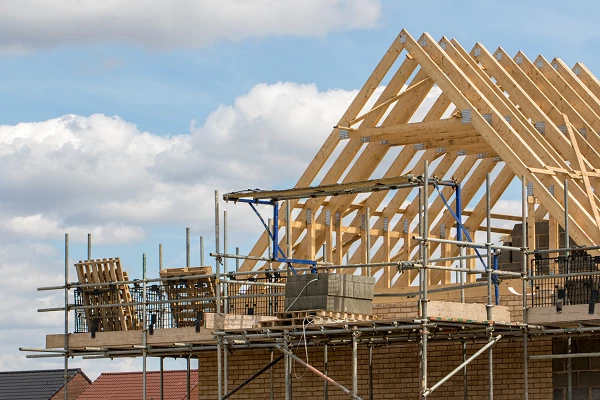
Partner Article
What is a Property Developer?
Some specialist financial products (like development finance) are issued exclusively to established and experienced property developers. Many lenders restrict their services to those with a provable track record and are unwilling to work with first-timers. But what exactly is a property developer, by definition? In short, a property developer is an individual (or partnership/group of individuals) who builds, renovates, repurposes or refurbishes residential or commercial properties. They construct new homes and business premises from scratch, they convert one type of property into another, or they ‘flip’ rundown and derelict properties for profit.
Some developers focus exclusively on certain types of properties, while others have broad and diverse project portfolios.
Why Work as a Property Developer?
The appeal of becoming a property developer is easy to understand. Across the UK, residential and commercial property prices are at an all-time high. Demand for desirable properties in key areas is off the charts and available inventory is at its lowest level in recent history.
All of which creates a uniquely lucrative landscape for the professional property developer. Many thousands of abandoned, unused and derelict properties are strewn across the country, with remarkable potential for redevelopment or repurposing. You need only look at the sheer volume of old commercial and industrial buildings being transformed into luxurious residential units to understand the appeal of property developments. Buying low and selling high is the name of the game, with huge profits to be made on successful property development projects.
Estimates suggest that in order to address the drastic undersupply of homes in the UK, at least 300,000 new homes will need to be built each year until 2031. For property developers who know how to spot a profitable venture in the making, there has never been a better time to leverage the country’s drastic housing shortage.
How Do Property Developers Fund Their Projects?
Contrary to popular belief, property developers do not pump vast sums of their own cash into their projects. You do not necessarily have to be rich to become a property developer, even though property developments can indeed make those behind them extremely wealthy.
The vast majority of property developers make concerted efforts to limit how much of their own money is tied up in their current and planned projects. Instead, they turn to specialist lenders to fund their projects, typically in the form of development finance. Development finance is a bespoke funding solution for property developers, issued to cover up to 80% of the project’s total costs. The remaining 20% can be covered with ‘mezzanine’ funding, enabling the developer to maintain full control of their own on-hand capital. There are no limitations on how much can be borrowed and the funds needed to finance a project can be organised and issued within a few weeks.
The full balance is repayable upon completion of the project (typically six to 18 months later) and interest accrues on a monthly basis (around 0.5% per month).
What Funding is Available to a New Property Developer?
Getting started as a new property developer is challenging, but perfectly possible. Where development finance specialists are unwilling to fund the projects of first-time developers, bridging finance can be the next big thing.
A bridging loan is a type of alternative finance that shares many similarities with development finance. It is a strictly short-term solution that can be organised promptly, with no limitations on how much can be borrowed.
Maximum LTVs are tied to the estimated value of the completed project and the value of the security used to cover the costs of the loan (typically up to a maximum of 85% LTV). Eligibility criteria for bridging finance are comparatively relaxed, making it ideal for first-time developers who are yet to get their portfolios underway.
This was posted in Bdaily's Members' News section by iCONQUER Ltd .






 A legacy in stone and spirit
A legacy in stone and spirit
 Shaping the future: Your guide to planning reforms
Shaping the future: Your guide to planning reforms
 The future direction of expert witness services
The future direction of expert witness services
 Getting people into gear for a workplace return
Getting people into gear for a workplace return
 What to expect in the Spring Statement
What to expect in the Spring Statement
 Sunderland leading way in UK office supply market
Sunderland leading way in UK office supply market
 Key construction developments in 2025
Key construction developments in 2025
 Mediation must be part of planning process
Mediation must be part of planning process
 From apprentice to chief financial officer
From apprentice to chief financial officer
 Don't stifle growth with apprenticeship cuts
Don't stifle growth with apprenticeship cuts
 The start-up landscape: What lies ahead in 2025
The start-up landscape: What lies ahead in 2025
 JATCO adds welcome drive to automotive sector
JATCO adds welcome drive to automotive sector